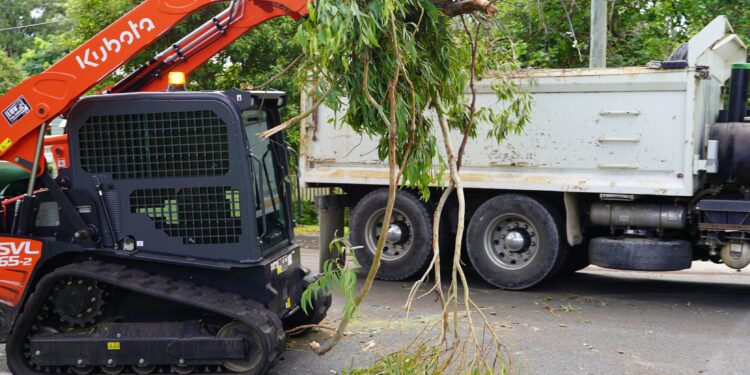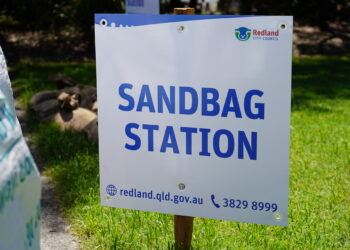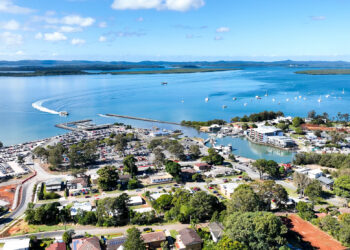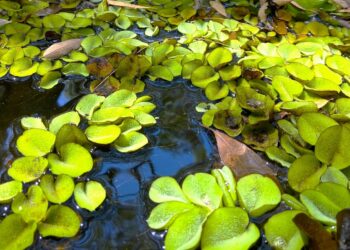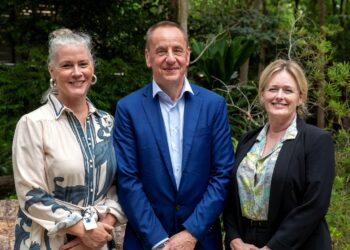Redland City Council continues to progress clean-up and maintenance works across the entire city, including the bay islands, following the impact of Tropical Cyclone Alfred in March this year.
Recovering from the cyclone has required a massive effort involving thousands of Council workers, contractors, support group workers, volunteers and, of course, residents.
The Local Recovery Group has so far:
- conducted more than 3000 safety checks on Council assets
- collected in excess of 40 tonnes of food and odorous waste
- supported 4600-plus residents at local Community Recovery Hubs
- and connected with 500 impacted businesses.
A lot of work has been completed but much is ongoing and is expected to continue into spring. At this point, Council’s full restoration target is sometime before the peak summer season.
Following the cyclone, every street of Redland City was driven down and inspected and any storm debris was cleared by various crews off roadways and footpaths.
For the first three weeks, six vacuum contracted excavation trucks cleared all known blocked or restricted kerb side drainage.
Council’s parks team alone (which is responsible for trees and conservation areas) has carried out more than 800 jobs per month throughout the city since the cyclone. This was on top of their normal business as usual.
Council’s tracks and trails team have completed 233 work requests which included inspecting and clearing debris from more than 380 kilometres of Vehicle Fire Access, Walking and Cycling Trails.
Council’s mowing program schedule is now back on schedule for the 602 hectares of turf that Council maintains, having completed 118 work requests and managing to get sporting fields reopened within two weeks of the cyclone.
Foreshore erosion occurred at Redland Bay and Coochiemudlo Island with repairs to both completed by the end of June.
The cyclone caused widespread damage to vegetation and infrastructure, and Council crews have been working tirelessly and systematically to clear debris, assess safety risks, and restore public access.
Priority has been given to areas with significant tree damage and those posing safety concerns for residents.
Council also prioritises areas based on community use, accessibility, and the extent of damage, ensuring resources are allocated where they are most needed.
Council applies a structured and environmentally responsible framework for vegetation management following severe weather events. This includes:
- Safety-first approach: Removal of hazardous trees and debris that pose risks to public safety.
- Infrastructure protection: Clearing vegetation to restore access to essential services and public spaces.
- Environmental stewardship: Use of qualified fauna spotters, habitat preservation strategies, and offset replanting programs to minimise ecological impact.
- Flood mitigation: Vegetation is cleared strategically to improve drainage and reduce future flooding risks.
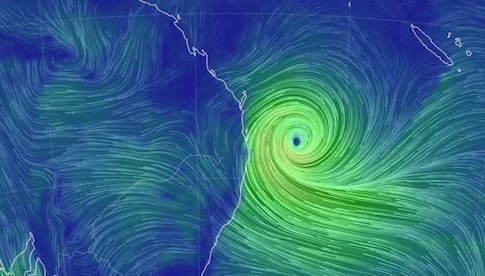
In July, Council endorsed two action plans that will guide the ongoing recovery and ensure the Redlands Coast community is prepared for future severe weather events.
Redland Tropical Cyclone Alfred Local Recovery Plan and Event-Specific Recovery Action Plan: Tropical Cyclone Alfred will be published on Council’s Disaster Dashboard.
Council reminds residents to continue disposing of any severe weather event green waste in their green-lid kerbside bins or by taking it to Council’s recycling and waste centres.
During the Tropical Alfred Cyclone clean-up, at least 2000 tonne of green waste attributed to the cyclone was collected from household green waste wheelie bins and received at recycling and waste centres.
It comes as Council officers investigate the recent dumping of vegetation (grass clippings and palm fronds) in Anniversary Park, Thornlands.
Illegal dumping, including green waste, can have a serious environmental impact by spreading pests and weed; blocking stormwater drains and natural water courses; as well as creating breeding grounds for flies, mosquitoes and rats.
It also comes at a significant cost to Council/ratepayers to remove the dumped waste.
To report illegal dumping, phone Council on 3829 8999, or report it via the Queensland Government’s Department of Environment and Science online Illegal Dumping Reporting form.

